In a rare interview, the Ofsted team tasked with tackling illegal schools speaks about the horrors they have witnessed, the risks they face and how they’ve found taxpayers’ money funding some of the worst cases.
A visit from Ofsted is enough to get any school leader’s heart pounding.
But inspectors arriving at schools usually don’t wear body cameras, nor are they considering the phrase “establishing reasonable cause” as they shake your hand.
Unless, of course, you’re surprised by a visit from Ofsted’s unregistered schools team.
The watchdog’s crack squad investigates illegal schools where children can be subject to corporal punishment and taught in squalid conditions by adults who may not have qualifications or criminal record checks.
The work is secretive. The inspectors don’t want operators to know they’re coming.
But in a rare interview, Victor Shafiee, the deputy director for independent and unregistered schools, and team leader Sue Will, spoke exclusively to Schools Week.
What we see are wasted lives
Although the team has been established for almost a decade, Ofsted keeps much of its work under wraps.
Why? Well, the team doesn’t want to give too much away. “These are criminal investigations,” Shafiee says.
Ofsted’s own data, though, tells its own story. According to the most recent figures, the team has investigated more than 1,200 schools since 2016.
Their inspections have resulted in 199 warning letters, 34 closures and 19 convictions, with more than 125 schools registering or coming into compliance after a visit.
An “illegal school” is defined as any unregistered independent school providing full-time education to five or more pupils, or at least one pupil who is looked after by the local authority or who has an education, health and care plan.
There is no legal definition of what constitutes “full-time” education, although the Department for Education generally considers it to mean more than 18 hours a week.
Those found running an illegal school can face up to six months in prison, an unlimited fine, or both.
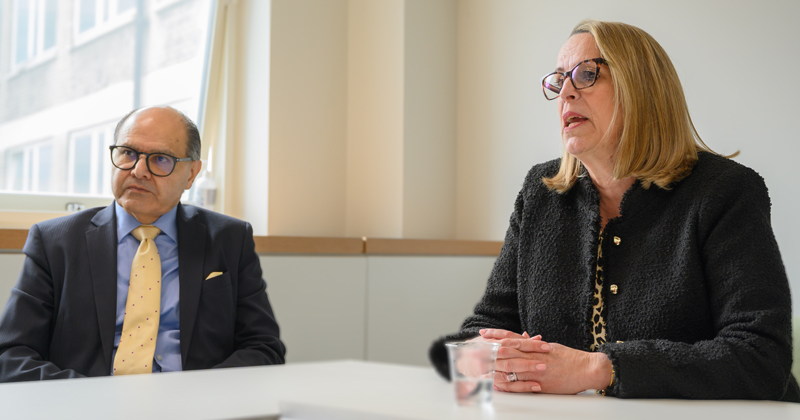
The team’s origins
“Ofsted has always had the power to investigate illegal schools,” Shafiee tells me, and inspectors have long been aware of the issue.
But it was in a Birmingham taxi in late 2015, so the story goes, that then-chief inspector Michael Wilshaw decided a dedicated team was needed.
“The taxi driver told him that he routinely took children to places that were not schools,” Shafiee says.
Almost ten years on, Shafiee and Will head a team of six senior inspectors and four investigators, most of whom have policing backgrounds.
But this is not a gang of balaclava-clad, SWAT-style commandos.
“They’re really caring, experienced inspectors,” Willw says. “They’re ex-police officers who’ve been involved in the safeguarding of children.”
In fact, after particularly tough inspections, “there’s often a tear shed”, she says.
Rat traps and corporal punishment
There’s no doubt Will and her inspectors have seen the worst of the worst.
She describes “Dickensian” schools with broken windows, exposed wires, no desks and rat traps on the floor.
Her team have found children “educated” in warehouses, above chip shops, and even in an open field.
But it’s not just dangerous premises her team worries about: it’s dangerous people.
“You can go into somewhere that doesn’t look as bad as that, but the guy running it is currently under police investigation.”
Her main concern, she says, is the danger that predators will “gravitate to somewhere that’s unregulated. And then you’re free in there to do as you please … some of the most horrendous things.”
Bullying and ridicule
Her inspectors will not see everything, but statements from children can form part of a case.
Pupils have described how they’ve been bullied and ridiculed. Some have endured corporal punishment, banned in all English schools since 1998.
And then there are disturbing details that leave inspectors with more questions than answers.
In one case, Will’s team found a school’s doors locked from the inside.
“You can’t imagine, when there’s so many things that protect children in school, that [these children] have none of that,” she says.
Not all the schools are dirty and dangerous.
But “it doesn’t matter that [inspectors saw] a worse one yesterday,” she says. “For that child on that day at that place, that’s the worst place.”
Propped up by councils
All the schools visited by the team charge fees. But not all those fees are paid by parents.
Some are paid by councils, which are allowed to place children in unregistered alternative provision.

“We’ve come across settings that have charged a local authority an enormous amount of money for what is a chaotic, disorganised place,” Shafiee says.
Not all unregistered AP is illegal. But the team is increasingly concerned that current safeguards designed to limit the number of children in an unregistered setting, and the amount of time they spend there, are being ignored.
The government has yet to respond to proposals, put forward after the launch of a government consultation last May, which recommended requiring all AP settings comply with national standards and having councils maintain lists of “approved” provision.
The team’s inspectors found one local authority in the north of England paying for nearly 100 children to attend a single unregistered AP.
Some councils cheating the rules
Will believes some councils are essentially sending children into full-time education at unregistered providers by enrolling them at more than one setting over the week.
“They know that if that child was there [at a single unregistered setting] five days a week, then that would be classed as an illegal school,” she says.
How much are councils spending on illegal schools? Recently, the team found a council paying just under £400 a day to an unregulated AP. Shafiee calculates the council’s total bill could have been £40,000 per year.
In another case, that Will describes as one of her “worst”, 60 children with EHCPs were found attending an AP in an open field with just a polytunnel for shelter.
The local authority was paying the provider “over £40,000”.
Inspection day
In a previous life, the team’s inspectors might have enjoyed a polite welcome as they arrived on site. But inspection day looks a little different for them now.
“We call it an inspection, but really it’s an investigation,” Will says.
Long before the team shows up, it will have been making enquiries into its legal status.

What kind of enquiries? Shafiee takes us off-the-record, fearing operators could catch on.
The team is fitted with body cameras designed to play a dual role: capturing important evidence and dissuading, or recording, abuse.
“Some of the people that we come across aren’t the nicest of characters,” Will says.
“No one has hit us, yet,” Shafiee says wryly. “But we did, with the help of the police and the Crown Prosecution Service, prosecute somebody who had racially and verbally assaulted two of our inspectors.”
Will says she has experienced misogynistic abuse. And during one inspection she was pushed into the curb by a man who felt “he had the right to the pavement”.
‘We call it an inspection, but really it’s an investigation’
“I’ve been called the devil’s daughter,” she says. Many times, “men have refused to engage with me whatsoever”.
Misogynistic behaviour doesn’t just happen at religious schools, Shafiee says. “We come across ‘macho men’ who think they can’t be ruled.”
Once inside a suspected illegal school, the team will collect evidence that can be used in a criminal prosecution — should the case go that far.
After a visit, inspectors will conduct further enquiries, Will says, which might result in a warning notice.
When would it pursue prosecution? With apologies, Will says, Ofsted would rather that not be published either.
New powers
The team’s caginess might come from the fact that there is plenty that can hamper their investigations.
The team isn’t allowed to forcibly gain entry to a school and it can’t take physical evidence away.
As a result, Shafiee says, “we’re doing a criminal investigation with our hands tied behind our backs”.
But that may soon change. The children’s wellbeing and schools bill would finally give the team new powers to “search and seize”.
“It brings us in line with other investigative bodies,” Will says. “It’s the minimum we need to be able to do the job.”
‘Some charge an enormous amount for what is a chaotic, disorganised place’
Team needs more funding
But there’s a snag. There’s no promise of extra funding, and “unless we have the resources, we won’t be able to do it”, Shafiee says.
With a team of just eight to cover the whole country, and with the bill widening the unit’s scope to include additional types of school, the workload could increase substantially.
As it stands, Shafiee says, team members may be dealing with the “tip of an iceberg”.
It’s impossible to say exactly how many unregistered schools there are in England – the team’s limited data comes from referrals made by councils, agencies and the public.
Plus, those running unregistered schools are getting wise to the way the team works.
“A lot of settings are now taking down their big signs outside,” Shafiee says.
But the referrals keep coming. Will guesses she has “over 100 cases” on her desk today: “We’ve never, ever been in the situation where we haven’t got any work to do.”
And if you think you might know about an illegal school? The team is clear — get in touch.
“What we see are wasted lives,” Shafiee says. “We see the hardest-to-help children getting a really raw deal. And it’s just not fair.”

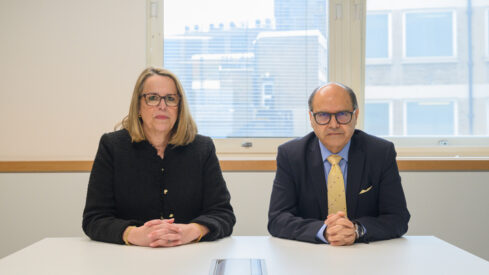




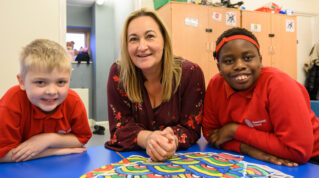
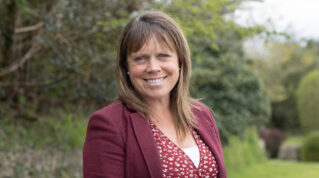
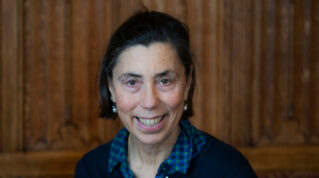
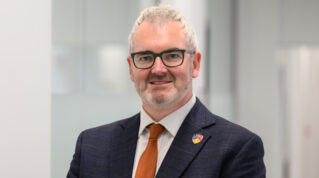
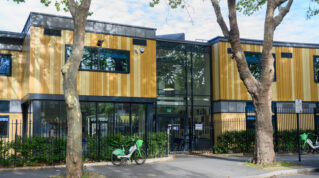


A school is a microcosm of the macroosm, society. If the macrocosm is to change for the better, then change for the better in the microcosm must first take place, be given priority.
I was teaching Science at an inner city inclusive mixed secondary school in 2002. I knew back then that problems in schools and society at large will worsen in the future if things continue in its current trajectory. We are now in 2025 and social decay is evident all around us as secondary schools appear not to have a clear sense of purpose or direction. Certification is not education.